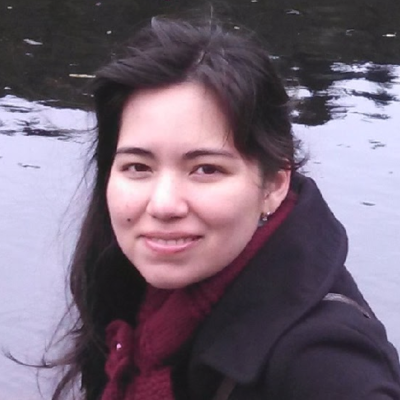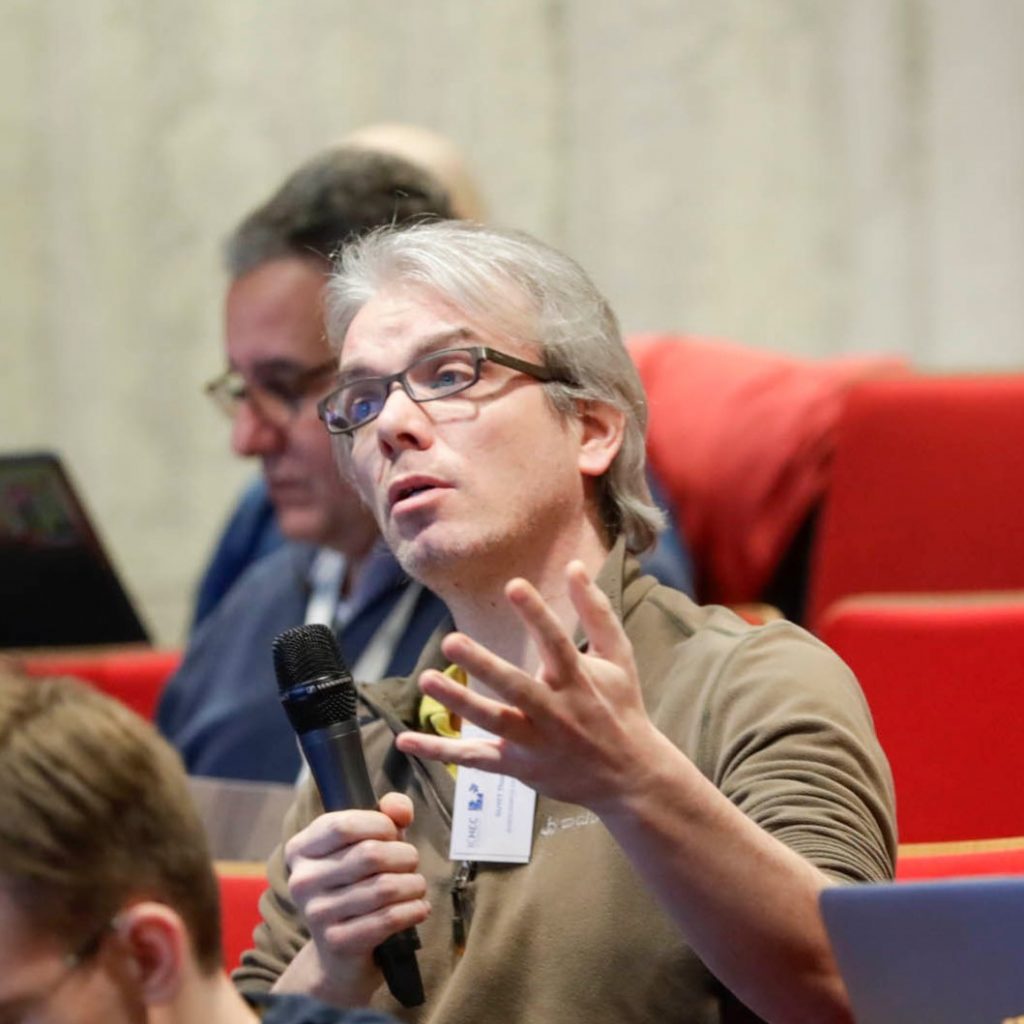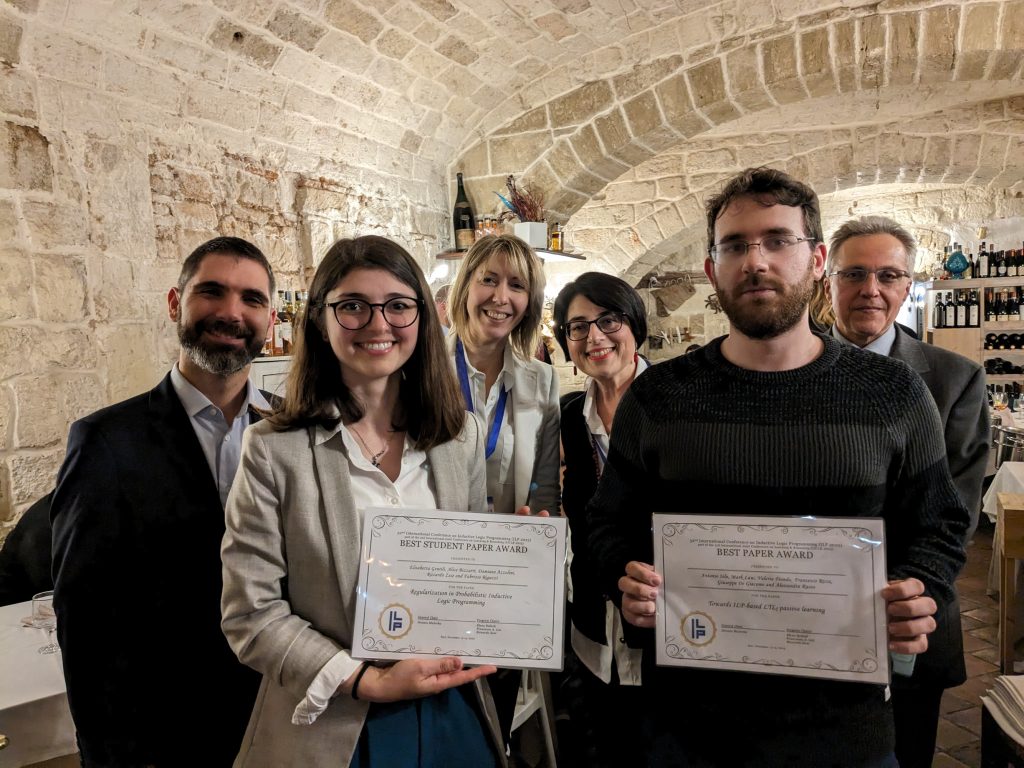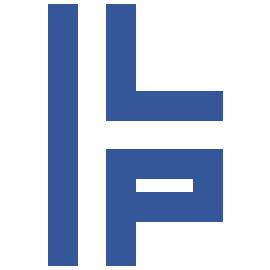The 32nd International Conference on Inductive Logic Programming (ILP 2023) will be held in Bari, Italy, 13-15 November 2023, as a component of the 3rd International Joint Conference on Learning & Reasoning, IJCLR 2023.
Inductive Logic Programming (ILP) is a subfield of machine learning, focusing on learning logical representations from relational data. The ILP conference series, started in 1991, is the premier international forum for learning from structured or semi-structured relational data, multi-relational learning and data mining. Originally focusing on the induction of logic programs, over the years it has expanded its research horizon significantly and welcomes contributions to all aspects of learning in logic, statistical relational learning, graph and tree mining, learning in other (non-propositional) logic-based knowledge representation frameworks, exploring intersections to statistical learning and other probabilistic approaches.
Proceedings
The proceedings are accessible from the following link. Free access for conference participants will be granted until 31 January 2024.
https://link.springer.com/book/10.1007/978-3-031-49299-0
Invited Speakers
We are happy to announce the names of the invited speakers:
- Ana Ozaki – University of Oslo & University of Bergen, Norway
- Thomas Guyet – Inria Center of Lyon, France
Ana Ozaki

Extracting Rules from ML models in Angluin’s Style
Monday 13th Nov, 14:00-14:45, Aula Magna.
Abstract: We first see an overview of recent approaches to extract simpler abstractions of complex neural networks using Angluin’s exact learning framework, from computational learning theory. The aim of constructing such abstractions is to obtain high level information from machine learning models, which can be useful to interpret their behavior, detect harmful biases, among others. We then discuss in more detail algorithms for learning logical theories in Angluin’s framework, in particular, those for learning rules in Horn logic. We highlight the benefits and shortcomings of these approaches. Finally, we present promising possible next steps and applications of these approaches for extracting high level information from complex machine learning models such as large language models.
Bio: Ana Ozaki is an associate professor at the University of Bergen and at the University of Oslo, Norway. She is an AI researcher in the field of knowledge representation and reasoning and in learning theory. Ozaki is interested in the formalization of the learning phenomenon so that questions involving learnability, complexity, and reducibility can be systematically investigated and understood. Her research focuses on learning logical theories formulated in description logic and related formalisms for knowledge representation. She is the principal investigator of the project Learning Description Logic Ontologies funded by RCN.
Thomas Guyet

Declarative Sequential Pattern Mining in ASP
Wednesday 15th Nov, 09:15-10:00, Aula Magna.
Abstract: In recent decades, several approaches have drawn analogies between pattern mining tasks and constraint programming. The development of modern constraint solvers (SAT, CP, Linear Programming, Answer Set Programming, etc.) has demonstrated the efficiency of these approaches on real-world datasets.
More than the efficiency of declarative programming, we argue that the true benefit of this approach lies in its versatility and its ability to integrate expert knowledge. This is especially evident in the case of Answer Set Programming (ASP), originally designed as a tool for knowledge reasoning.
In this presentation, we will focus on the task of sequential pattern mining, which involves discovering interesting patterns in a collection of sequences. Firstly, we will introduce the concept of ASP encoding for sequential pattern mining tasks and showcase the advantages of declarative programming in fast-prototyping complex mining tasks.
Next, we will highlight the capability of the Clingo solver to efficiently combine reasoning and procedural programming to address the mining of chronicles. Finally, we will conclude this presentation by exploring the potential development of epistemic measures of interestingness at the crossroad of declarative pattern mining and knowledge reasoning.
To illustrate the effectiveness of a knowledge-centric approach, we will provide practical examples of these advanced features, focusing specifically on their application in analyzing care pathways to answer pharmaco-epidemiological questions.
Bio: Thomas Guyet received his Ph.D. in Computer Science in 2007 from the National Polytechnic Institute of Grenoble, France. He subsequently joined the IRISA laboratory as an Assistant Professor until 2020. His research interests lie in the analysis of temporal data, particularly time sequences, using various artificial intelligence techniques, ranging from machine learning to ontological reasoning and pattern mining. Thomas Guyet is currently a full researcher at the Inria Center of Lyon. He is a member of the AIstroSight team, which focuses on leveraging computer science tools to enhance drug design, with a particular emphasis on combining modeling and machine learning. He develops different approaches to extract knowledge from healthcare pathways and is currently a co-holder of an Inria/APHP chair in AI-Raclès dedicated to this subject.
Program
The programme can be seen on the IJCLR programme page.
Accepted Papers
Sorted alphabetically by authors’ surnames
Long Papers
A Constrained Optimization Approach to Set the Parameters of Probabilistic Answer Set Programs
Damiano Azzolini
Regularization in Probabilistic Inductive Logic Programming
Elisabetta Gentili, Alice Bizzarri, Damiano Azzolini, Riccardo Zese and Fabrizio Riguzzi
Towards ILP-based LTLf passive learning
Antonio Ielo, Mark Law, Valeria Fionda, Francesco Ricca, Alessandra Russo and Giuseppe De Giacomo
Learning Strategies of Inductive Logic Programming Using Reinforcement Learning
Takeru Isobe and Katsumi Inoue
Select first, transfer later: choosing proper datasets for statistical relational transfer learning
Thais Luca, Aline Paes and Gerson Zaverucha
GNN based Extraction of Minimal Unsatisfiable Subsets
Sota Moriyama, Koji Watanabe and Katsumi Inoue
What Do Counterfactuals Say about the World? Reconstructing Probabilistic Logic Programs from Answers to “What if?” Queries
Kilian Rueckschloss and Felix Weitkämper
Few-shot learning of diagnostic rules for neurodegenerative diseases using Inductive Logic Programming
Dany Varghese, Roman Bauer and Alireza Tamaddoni-Nezhad
An Experimental Overview of Neural-Symbolic Systems
Arne Vermeulen, Robin Manhaeve and Giuseppe Marra
Statistical relational structure learning with scaled weight parameters
Felix Weitkämper, Dmitriy Ravdin and Ramona Fabry
A Review of Inductive Logic Programming Applications for Robotic Systems
Youssef Mahmoud Youssef and Martin E. Müller
Short Papers
Meta Interpretive Learning from Fractal images
Daniel Cyrus, James Trewern and Alireza Tamaddoni-Nezhad
Late-Breaking Papers
Learning Brave Assumption-Based Argumentation Frameworks via ASP
Emanuele De Angelis, Maurizio Proietti and Francesca Toni
Download PDF
Call for Papers
We solicit submissions in all areas of learning in logic and multi-relational data mining. Areas of interest include, but are not limited to:
- Theory of ILP, foundations of logical & relational learning, computational learning theory.
- Learning in various logical representations and formalisms, such as logic programming & answer set programming, first-order & higher-order logic, description logic & ontologies.
- Statistical relational learning, including structure/parameter learning for probabilistic logic languages, relational probabilistic graphical models, kernel-based methods, neural-symbolic learning.
- Meta-interpretative learning & predicate invention.
- Semi-supervised & unsupervised relational learning.
- Methods for scaling-up ILP, parallel & distributed relational learning.
- Incremental & online relational learning, learning from data streams.
- Applications of ILP.
We solicit three types of submissions:
- Conference papers, describing original work with appropriate experimental evaluation and/or a self-contained theoretical contribution. Submitted conference papers should not have been published, or be under review for a journal, or another conference with published proceedings. Conference papers may be either long papers, of up to 15 pages, including references, or short papers of up to 6-9 pages, including references. Long papers should contain a substantial contribution that justifies their length, e.g. proofs of extensive experimental studies. Accepted conference papers will be published by the Springer LNAI conference proceedings.
- Late-breaking abstracts, briefly outlining novel ideas and proposals that the authors would like to present at the conference. These could include e.g. original work in progress without conclusive experimental findings, or other relevant work, not yet ready for publication. Submissions of late-breaking abstracts will be accepted/rejected on the grounds of relevance. Accepted late-breaking abstracts will be published on the conference website. Late-breaking abstracts must not exceed 4 pages, including references.
- Recently published papers relevant to ILP, or papers recently accepted for publication by a first-class conference such as ECML/PKDD, ICML, KDD, ICDM, AAAI, IJCAI, etc. or journal such as MLJ, DMKD, JMLR etc. These will be accepted/rejected on the grounds of relevance and quality of the original publication venue. For papers of this category a link to the original work will be published on the conference website. Authors should submit the abstract and the PDF file of the original submission, specifying in the abstract the original venue where the paper was accepted in addition to the acceptance date. Authors submitting a recently published paper should submit it through IJCLR’s “Recently Published Papers Track” option from the submission page.
All accepted papers will be assigned a presentation slot at the conference. Long conference papers will be assigned an extended slot, while short conference papers, late-breaking abstracts and recently published papers will be assigned a reduced slot.
Additionally, authors of accepted papers will have the opportunity to present their papers during the joint poster sessions. At least one of the authors of accepted papers/late-breaking abstracts must register for the conference and present their work.
Publication
Conference papers (either short or long) will be included in the conference proceedings, to be published by Springer Verlag in the Lecture Notes in Artificial Intelligence (LNAI) Series.
Late Breaking abstracts will be published on the conference website. A link to recently published papers will be uploaded to the conference website.
Paper submission
Submissions will be handled by EasyChair. To submit a paper to ILP, authors are invited to follow the submission link and select the ILP track. For recently published papers please use the “Recently Published Papers Track”.
Submissions must be in Springer LNCS format, according to the Springer LNCS author instructions. Springer’s proceedings LaTeX templates are also available in Overleaf. We encourage authors and editors of proceedings to include their ORCIDs in the proceedings. Already published papers should be submitted in their original format and the authors should indicate the original publication venue.
Important Dates (Extended)
Note that all dates are AoE.
| ILP Conference | Abstract submission (long & short conference papers) Extended! | 6th July 2023 |
| Paper submission (long & short conference papers) Extended! | 13th July 2023 | |
| Author notification | 25th August 2023 | |
| Camera-ready due | 8th September 2023 | |
| Late-breaking abstracts & already published papers submission | 1st September 2023 | |
| Author notification | 15th September 2023 | |
| ILP Conference | 13-15th November 2023 |
Organisers
Program Chairs
Francesca Alessandra Lisi, University of Bari, Italy
Elena Bellodi, University of Ferrara, Italy
Riccardo Zese, University of Ferrara, Italy
Program Committee Members
Alexander Artikis, NCSR Demokritos, Greece
Damiano Azzolini, University of Ferrara, Italy
Krysia Broda, Imperial College London, UK
James Cussens, University of Bristol, UK
Stefano Ferilli, University of Bari, Italy
Céline Hocquette, Imperial College London, UK
Katsumi Inoue, National Institute of Informatics, Japan
Cezary Kaliszyk, University of Innsbruck, Austria
Nikos Katzouris, NCSR Demokritos, Greece
Dimitar Kazakov, University of York, UK
Ross King, Chalmers University of Technology, Sweden
Nada Lavrač, Jozef Stefan Institute, Slovenia
Aline Paes, Universidade Federal Fluminense, Brazil
Oliver Ray, University of Bristol, UK
Fabrizio Riguzzi, University of Ferrara, Italy
Celine Rouveirol , Universit Paris 13, France
Ute Schmid, University of Bamberg, Germany
Ashwin Srinivasan, Birla Institute of Technology & Science, India
Alireza Tamaddoni-Nezhad, University of Surrey, UK
Gerson Zaverucha, Federal University of Rio de Janeiro, Brazil
Filip Zelezny, Czech Technical University, Czech Republic
Sponsors and Awards
The ILP conference gives best paper awards in the following categories:
The Best Paper Award will be chosen among the long papers submitted at the conference.
The award is worth €500 kindly provided by Springer.
And the winner is…
Towards ILP-based LTLf passive learning
Antonio Ielo, Mark Law, Valeria Fionda, Francesco Ricca, Alessandra Russo and Giuseppe De Giacomo
The Best Student Paper Award will be chosen among the long papers submitted at the conference. To qualify for either student paper award, the first author had to be a student at the time of submitting the paper.
The award is worth €500 kindly provided by Springer.
And the winner is…
Regularization in Probabilistic Inductive Logic Programming
Elisabetta Gentili, Alice Bizzarri, Damiano Azzolini, Riccardo Zese and Fabrizio Riguzzi

Past Conferences
ILP 2022, Cumberland Lodge, Windsor Great Park, United Kingdom
ILP 2020-21, Virtual at IJCLR 2021
ILP 2019, Plovdiv, Bulgaria
ILP 2018, Ferrara, Italy
ILP 2017, Orléans, France
ILP 2016, London, UK
ILP 2015, Kyoto, Japan
ILP 2014, Nancy, France
ILP 2013, Rio de Janeiro, Brazil
ILP 2012, Dubrovnik, Croatia
ILP 2011, Cumberland Lodge, Windsor Great Park, United Kingdom
ILP 2010, Firenze, Italy
ILP 2009, Leuven, Belgium
ILP 2008, Prague, Czech Republic
ILP 2007, Corvallis, Oregon, USA
ILP 2006, Santiago, Spain
ILP 2005, Bonn, Germany
ILP 2004, Porto, Portugal
ILP 2003, Szeged, Hungary
ILP 2002, Sydney, Australia
ILP 2001, Strasbourg, France
ILP 2000, London, UK
ILP 1999, Bled, Slovenia
ILP 1998, Madison, Wisconsin, USA
ILP 1997, Prague, Czech Republic
ILP 1996, Stockholm, Sweden
ILP 1995, Leuven, Belgium
ILP 1994, Bonn, Germany
ILP 1993, Bled, Slovenia
ILP 1992, Tokyo, Japan
ILP 1991, Viana do Castelo, Portugal

